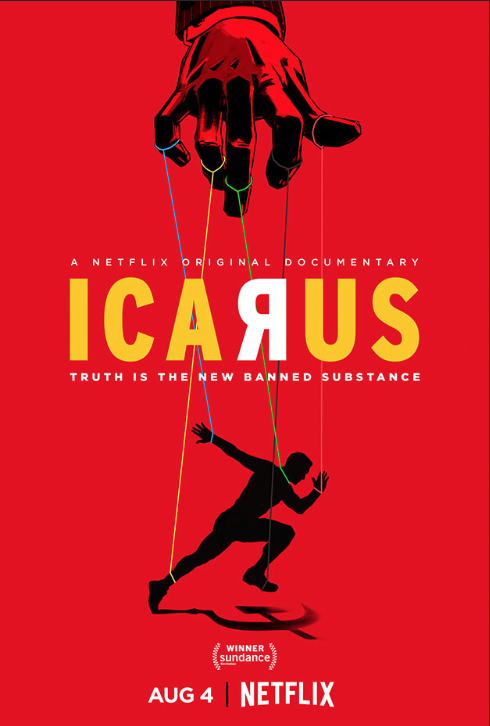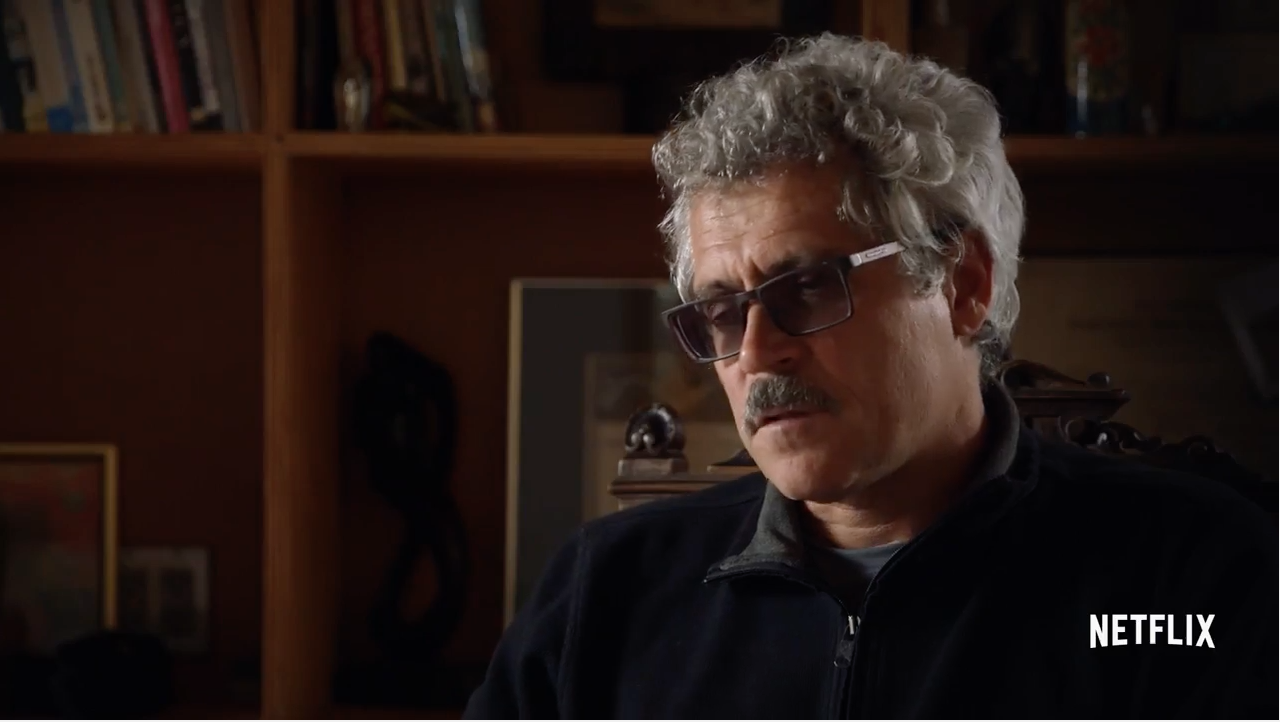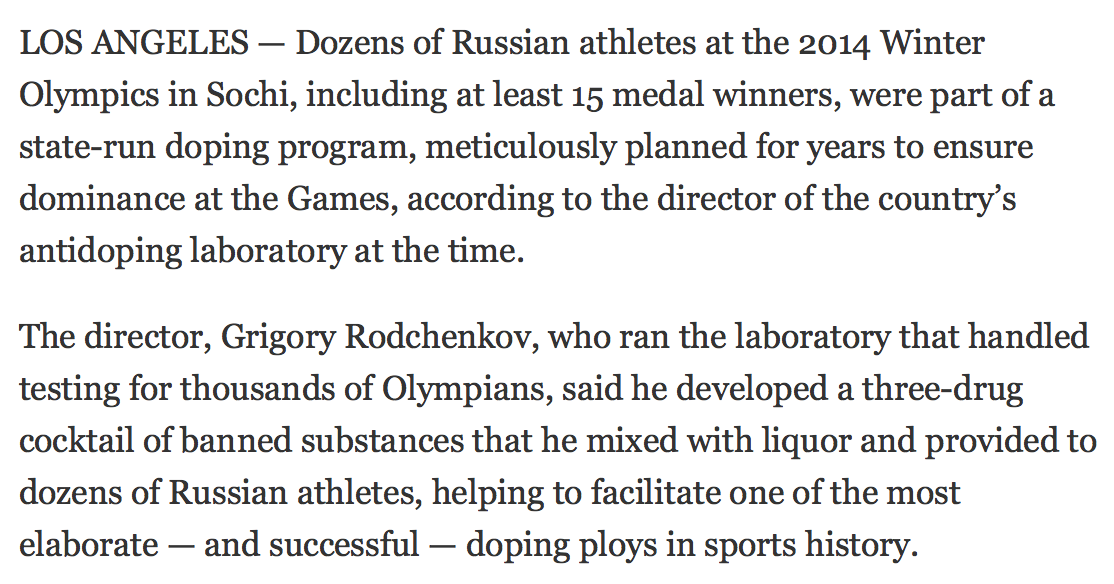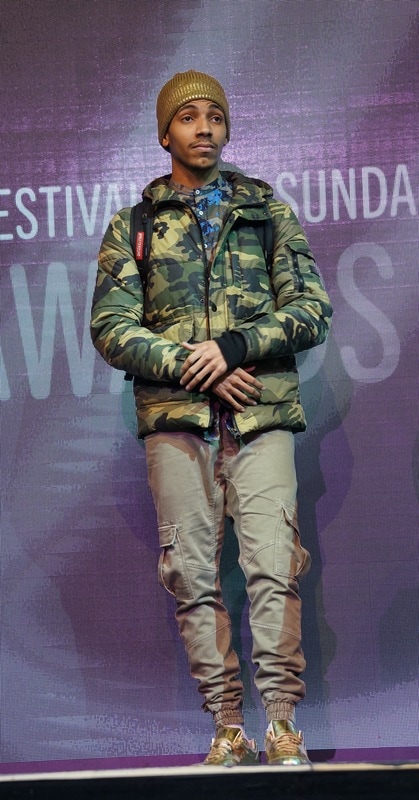|
Filmmaker Bryan Fogel's investigation lays bare Kremlin role gaming the system Update: Icarus earns a spot on Oscar documentary shortlist Bryan Fogel's documentary Icarus, now streaming on Netflix, might be described as one part Super Size Me and two parts Citizenfour. The Super Size Me comparison comes from the competitive cyclist's decision to turn himself into a human guinea pig -- injecting himself with steroids, human growth hormone and other performance enhancing substances over a period of months, all while he documented the process on video. His intent was to demonstrate how readily possible it is to test clean despite supposedly fail-safe efforts meant to catch cheating cyclists. The Citizenfour comparison came into play later -- after Fogel's attempt to figure out a test-proof doping regimen led him to join forces with a prominent Russian scientist, a fateful decision that would culminate in an international scandal. Everybody -- my parents and everybody around -- were like, 'Aren't you scared? Aren't you scared?' It's a complex story -- with as many twists and turns as the mountain roads Fogel regularly cycled across. In an interview with Nonfictionfilm.com at Netflix offices in L.A., Fogel took us through the circuitous process that resulted in the finished film. He said it began with the title -- Icarus, from the character of Greek myth who plunged to his death after flying too close to the sun. "I was looking for what I felt was a metaphor, analogy, for the fall of Lance Armstrong," Fogel explained, referring to the disgraced cyclist who ultimately admitted using performance enhancing drugs, after denying it for years. "I viewed his fall as kind of the crash of Icarus, where he was flying and he was flying and he was flying and he could have just kept flying and flying but he just had to keep pushing it... until he upset enough people that he eventually crashed and burned." WADA -- the World Anti-Doping Agency -- was created to nab the Lance Armstrongs of the world, but Fogel felt the evidence showed it was still possible to cheat. He doped to see how it would affect his performance in a major amateur cycling race in France, a medical experiment that alarmed his loved ones. "Everybody -- my parents and everybody around -- were like, 'Aren't you scared? Aren't you scared?' What I was scared about was flying off my bike going 70 miles an hour down a mountain in the French Alps," Fogel recalled. "That is scary." As he developed his test case scenario Fogel sought guidance from leading experts in anti-doping. Eventually he was referred to Grigory Rodchenkov, head of Moscow's WADA-certified anti-doping lab. Rodchenkov's lab "oversaw the testing for all Russian athletes across all sport. It also oversaw the testing for all international athletes that would come to Russia to compete in international sporting events," Fogel told us. "He was one of the most powerful scientists in the anti-doping world." For reasons best known to Rodchenkov -- a freewheeling character who seemed to savor a bit of intrigue -- he enthusiastically agreed to help Fogel cheat the system. This involved advising Fogel on what drugs to take and when to take them, among other things. "Essentially [I] got him to agree to help me dope and also agree to help facilitate the testing of my samples through his Moscow laboratory," Fogel said. Director Bryan Fogel on choosing Icarus as the title of his film It would become clear Fogel couldn't have found a better person to help him cheat because that basically is what Dr. Rodchenkov did for a living, allegedly at the behest of Russia's Ministry of Sport. "As it turns out [Rodchenkov] was really in the anti-anti-doping world," Fogel observed. "Behind the scenes what they were doing was essentially to evade detection and to allow the Russian athletes to cheat and go undetected and to test clean. This system had essentially been in place all the way through the 80s moving forward." The truth of what Rodchenkov's lab was up to started to come out in the midst of Fogel's secret collaboration with the chemist. Naturally, the revelations embarrassed the Kremlin, and Rodchenkov began to fear the government might prefer him dead, as had happened in mysterious circumstances to two other people connected to the Russian anti-doping program. "Putin will kill me," Rodchenkov declares at one point in the film. That's when the Citizenfour-international thriller element of Icarus kicked in, as Fogel worked to get Rodchenkov out of Russia -- damning details in tow. "He's got this hard drive with him and [it] contains basically 1,700 documents of evidence, spreadsheets with meta-data that link back to the Ministry [of Sport]," Fogel told Nonfictionfilm.com, showing "the email chains, the details of what every athlete was taking, when they were taking it, their [urine] bottle collection numbers and ultimately photographs and schematics of what they had done at the Sochi Olympics which was a whole other fraud on a level way beyond anti-doping." Fogel and Rodchenkov took the evidence to the New York Times, which published an investigative piece in May 2016. The Russian subterfuge during the winter Olympics in 2014 involved both high-tech and some ingeniously low-tech maneuvers, as the Times detailed in a follow up piece on May 24, 2016. "At Sochi, Dr. Rodchenkov said, Russia focused its efforts not on masking the presence of drugs in an athlete’s system or evading detection through subtle chemistry, but rather on substituting urine samples, a more brazen way to beat the system," the Times wrote. "Each night, he said, he and a small team swapped out Russian athletes’ tainted urine for clean urine, collected from the athletes in the months leading to the Games and passed surreptitiously through a hole in the wall of the lab building." Fogel told us Rodchenkov is very clear who ordered the cheating program at Sochi. "The mandate [came] from Putin, according to Grigory... to win at all costs, meaning whatever you've got to do, win," Fogel stated. "They came out on top of the medal count. They also won the most Gold Medals of any country -- 13. And this was an astonishing success for Putin and for Russia to have such a fantastic performance at their own Olympics." The revelations triggered an immense scandal that led to the banning of many Russian athletes from competition at the 2016 summer Olympic Games in Rio. For Fogel, becoming entangled in a cloak-and-dagger story with geopolitical ramifications brought its own measure of stress. "My head was spinning and my heart was palpitating and I had many, many, many sleepless nights," he admitted. "I didn't set out to make this film initially. I didn't set out to expose this scandal. I didn't set out knowing where it was going to go to and the story just kept coming to me." Russia has denied any state-sponsored doping effort, but Fogel dismisses that. "Russia not acknowledging it I think is par for the course," he said. "They don't accept responsibility for anything... What you see out of that government is denials and denials and denials against wrong-doing in any sort of political affair. You look at the question of whether or not... they meddled with the [2016 U.S.] election or what they've been doing in Syria or whether or not they might have tried to tamper with the French election, etc., there is always a constant denial. So that is to be expected." Fogel added, "What the film shows beyond a shadow of a doubt, beyond any reasonable doubt is the extent to which Russia is willing to go to insert as a world power and to win at all costs. And that is certainly the story of this film."
|
AuthorMatthew Carey is a documentary filmmaker and journalist. His work has appeared on Deadline.com, CNN, CNN.com, TheWrap.com, NBCNews.com and in Documentary magazine. |
- Home
- News
- Videos
-
Galleries
- 2019 Tribeca Film Festival
- Full Frame Documentary Film Festival
- 2019 SXSW Film Festival
- SXSW 2018 Gallery
- 2019 Sundance Film Festival
- Outfest 2018 Photo Gallery
- Outfest 2017
- Sundance 2018 Photos
- 2017 LA Film Festival
- 2017 Cannes Film Festival
- Tribeca Film Festival 2017
- SXSW 2017 Gallery
- 2017 Berlin Film Festival
- Sundance 2017 Gallery
- 2016 Los Angeles Film Festival
- Cannes Film Festival 2016
- SXSW 2016 Gallery
- Berlinale 2016 Gallery
- Sundance 2016 Gallery
- Filmmaker Gallery
- About
- Contact
Proudly powered by Weebly
- Home
- News
- Videos
-
Galleries
- 2019 Tribeca Film Festival
- Full Frame Documentary Film Festival
- 2019 SXSW Film Festival
- SXSW 2018 Gallery
- 2019 Sundance Film Festival
- Outfest 2018 Photo Gallery
- Outfest 2017
- Sundance 2018 Photos
- 2017 LA Film Festival
- 2017 Cannes Film Festival
- Tribeca Film Festival 2017
- SXSW 2017 Gallery
- 2017 Berlin Film Festival
- Sundance 2017 Gallery
- 2016 Los Angeles Film Festival
- Cannes Film Festival 2016
- SXSW 2016 Gallery
- Berlinale 2016 Gallery
- Sundance 2016 Gallery
- Filmmaker Gallery
- About
- Contact





 RSS Feed
RSS Feed